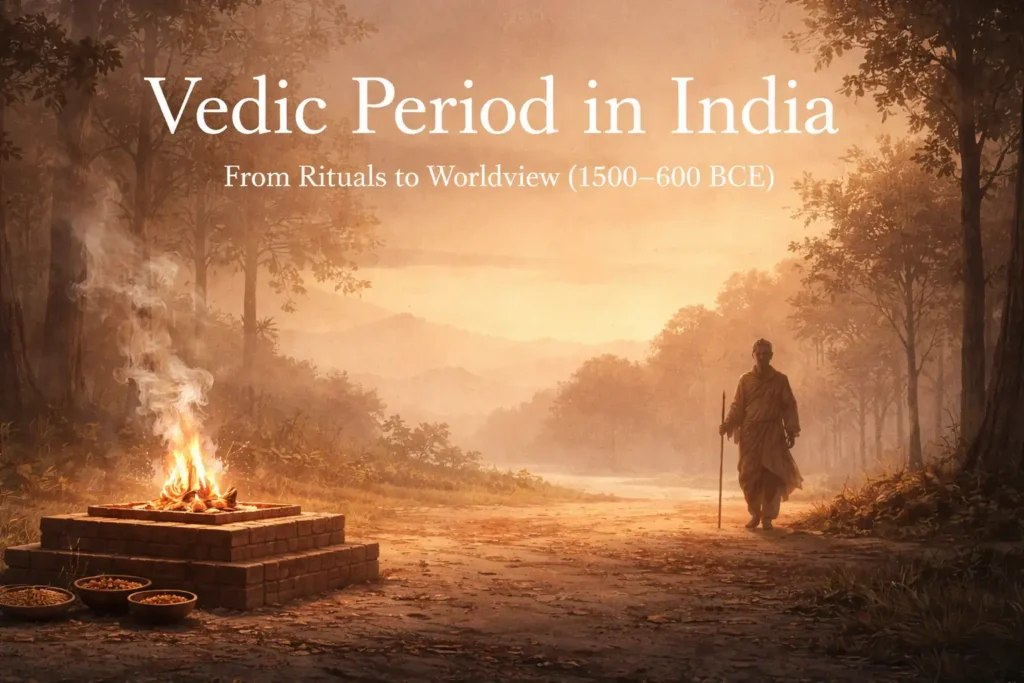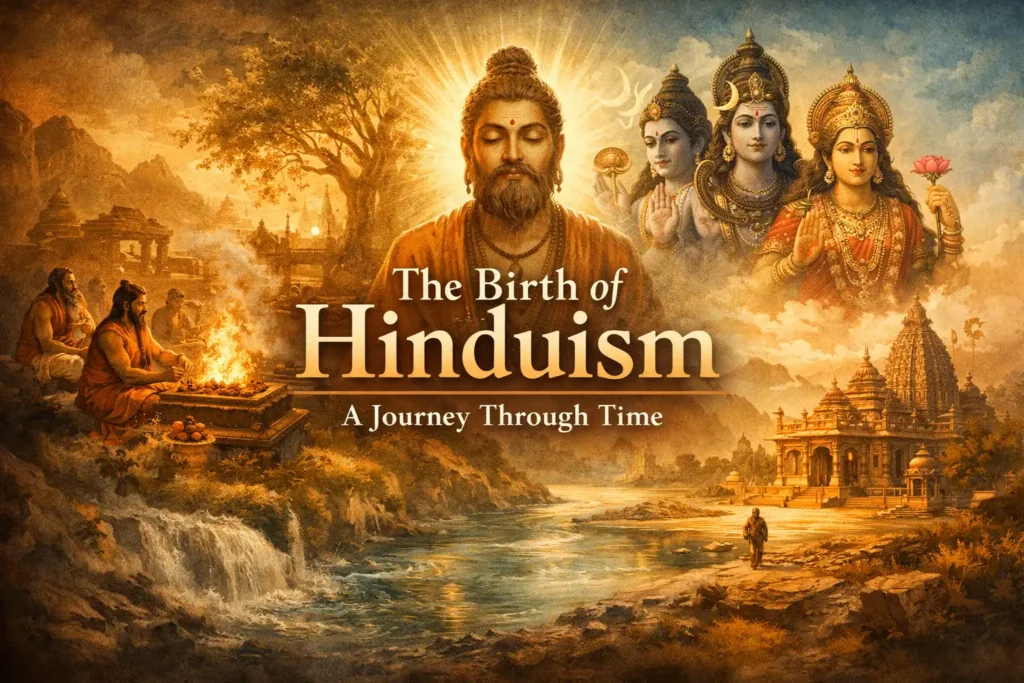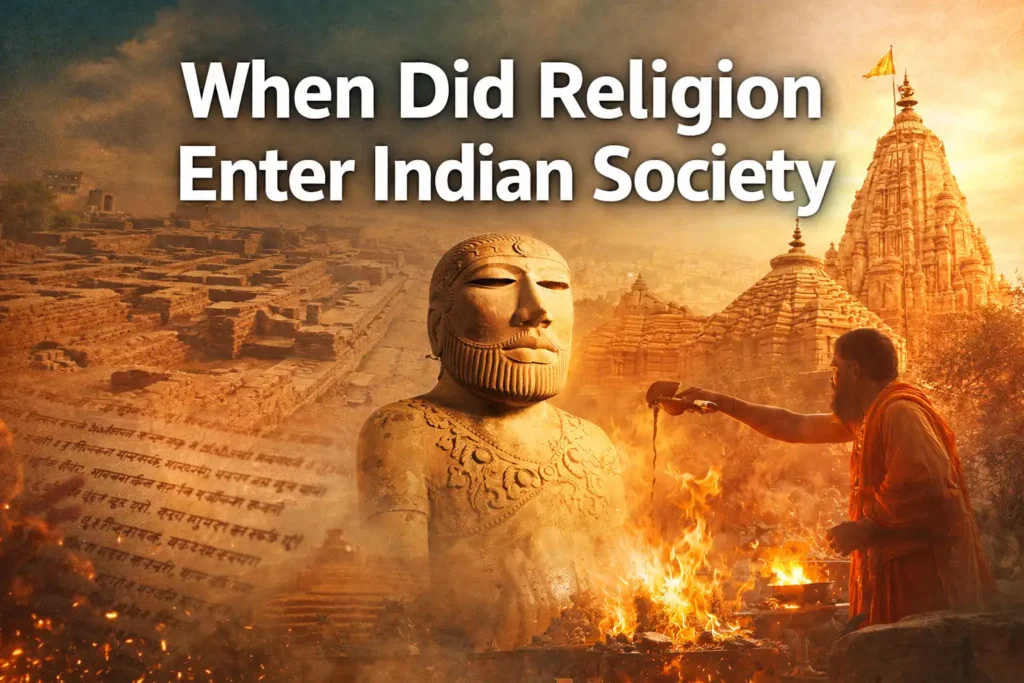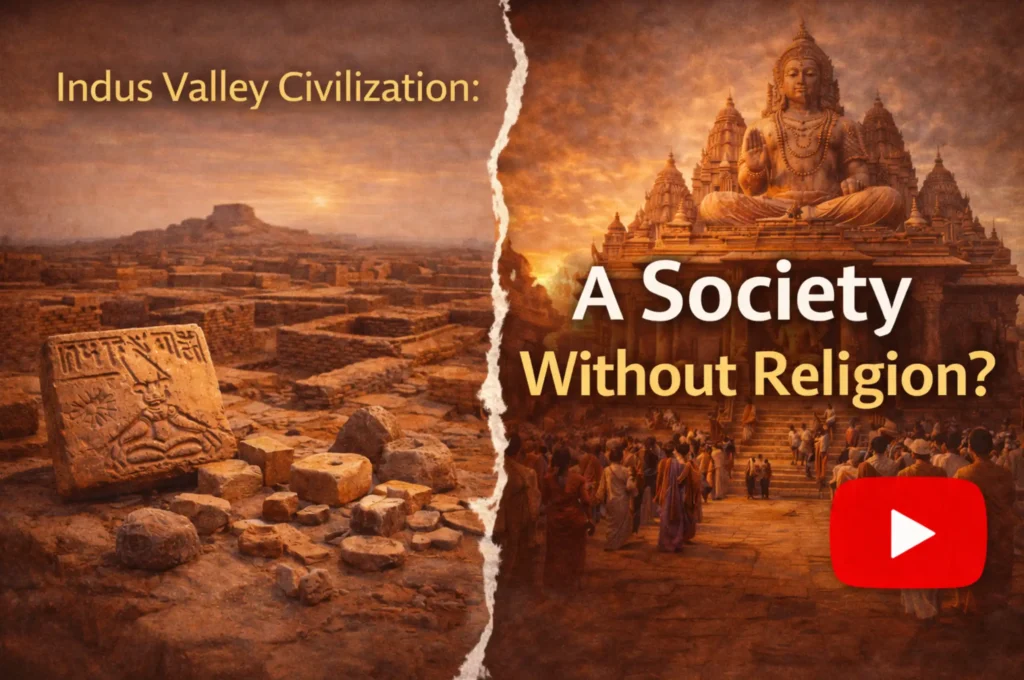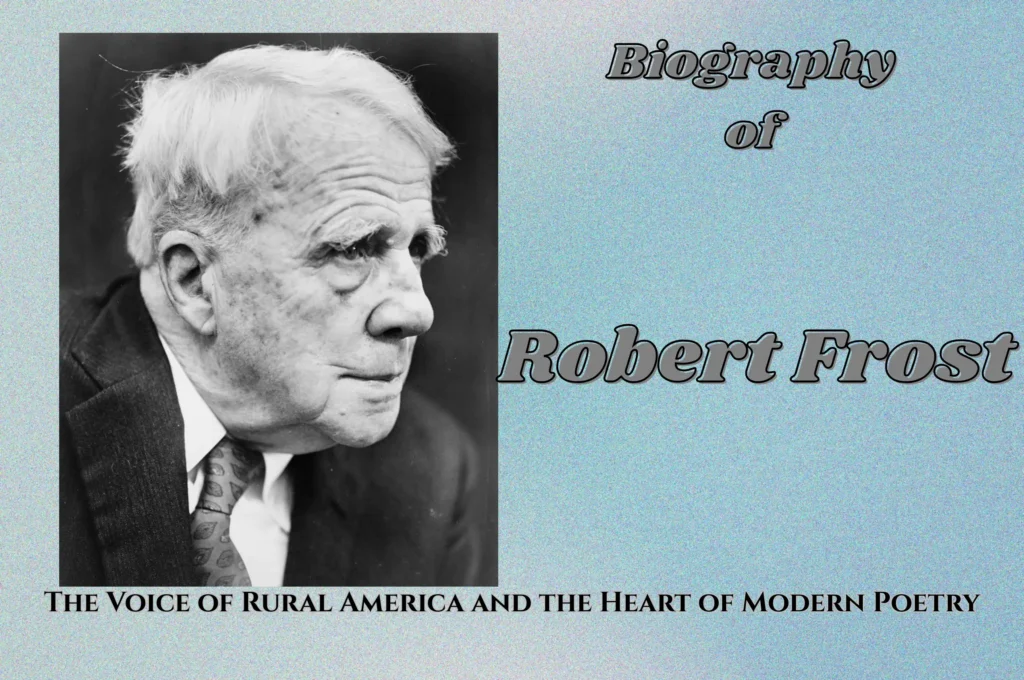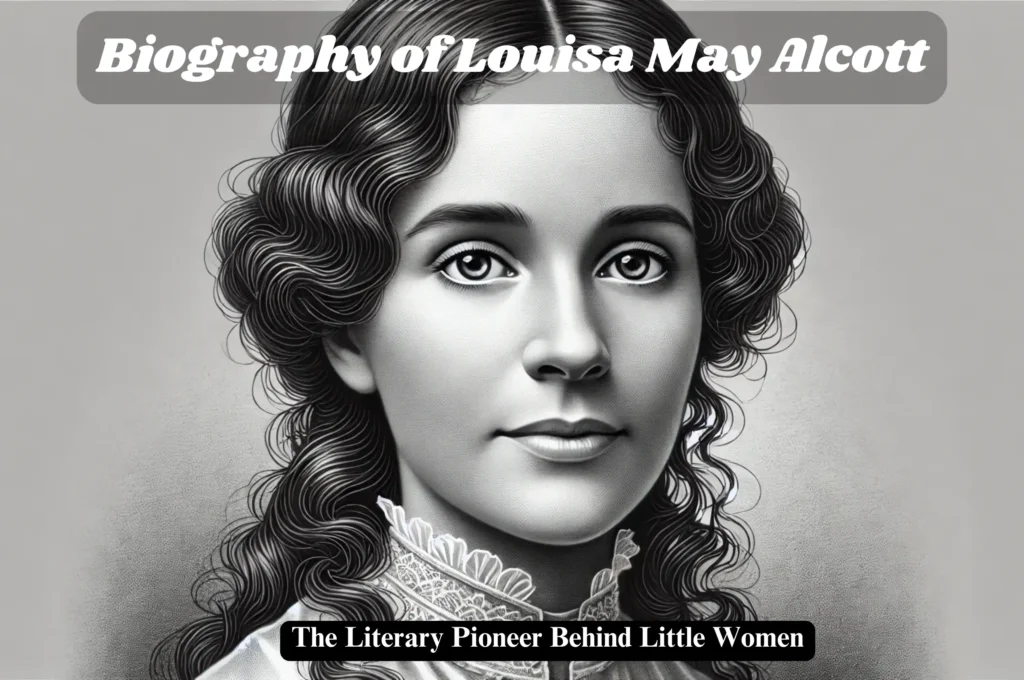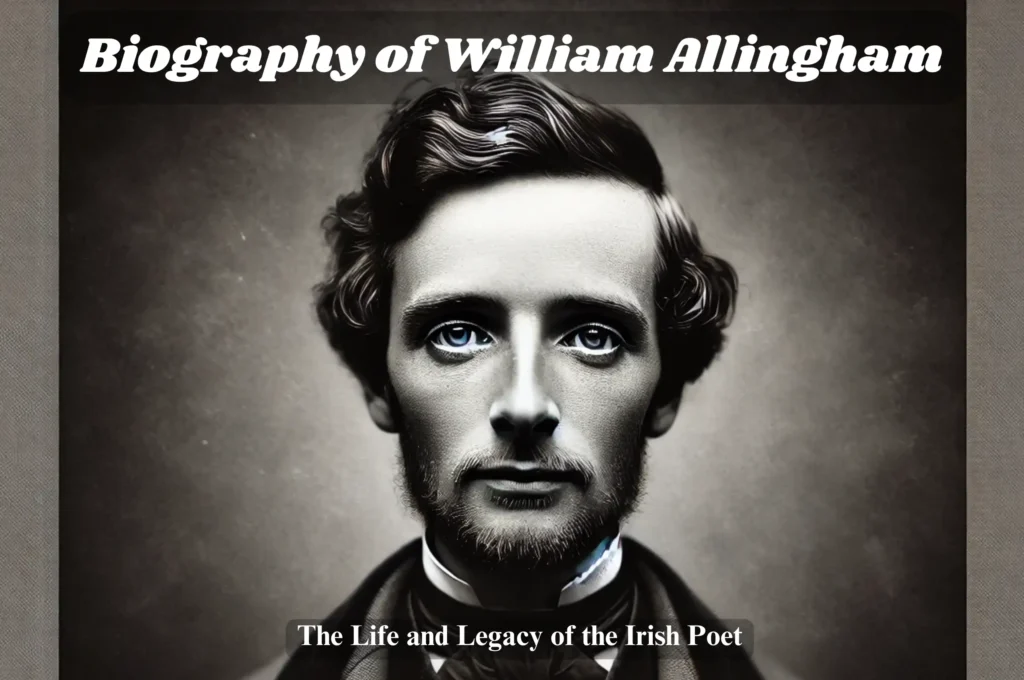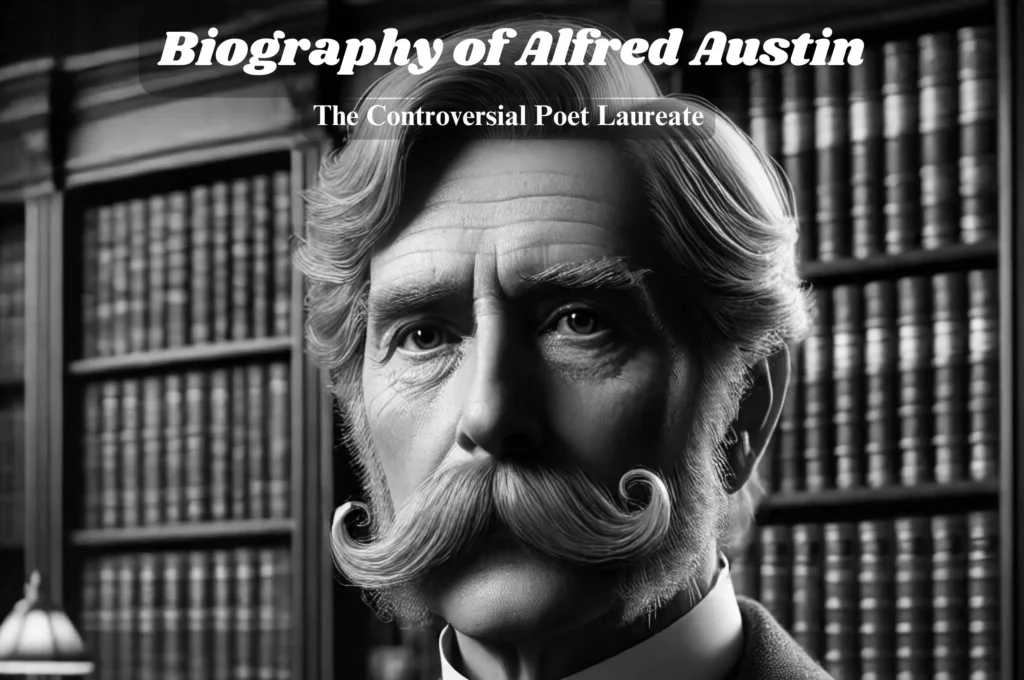Read the Biography of Saint Kabir. Kabir, born in the 15th century in India, stands as one of the country’s most revered mystic poets and saints. His life and works are a testament to the enduring wisdom that challenges the boundaries of religious orthodoxy. Born into a family of weavers, Kabir’s humble beginnings did not preclude him from becoming a towering figure in Indian spiritual and literary traditions. His unique position allowed him to straddle both Hindu and Muslim traditions, making his teachings universally appealing and relevant across religious divides.
Introduction to Saint Kabir
Historically, Kabir’s birth is often placed around 1440 CE in the city of Varanasi, a significant cultural and religious hub. Raised in the Muslim weaver community, he was profoundly influenced by both Hindu and Islamic philosophies. This duality in his upbringing is reflected in his literary works, which often blend elements from the Vedas and the Quran. Kabir’s poetry and songs, marked by their simple yet profound language, address complex spiritual themes such as the search for the divine, the futility of ritual, and the importance of inner purity.
Kabir’s reputation as a mystic poet is well-deserved, given his ability to convey deep spiritual truths through accessible and relatable metaphors. His compositions, known as “Kabir ke Dohe” (couplets of Kabir), are revered for their clarity and directness. Kabir’s life was dedicated to challenging the rigid structures of organized religion and promoting a message of unity, love, and inner transformation. His teachings emphasize the oneness of God and the importance of personal experience over blind adherence to religious dogmas.
In an era marked by social and religious stratification, Kabir’s voice resonated as a call for unity and understanding. He questioned societal norms and denounced superficial religious practices, advocating instead for a direct, personal connection with the divine. Through his works, Kabir sought to bridge the gap between Hinduism and Islam, promoting a message of love and universal brotherhood that remains pertinent even today. His legacy endures not only in the annals of Indian literature but also in the hearts of those who seek a deeper, more inclusive spirituality.
Also Read: 10-famous-quotes-from-famous-people
Explore Category: Biographies
Biography of Saint Kabir
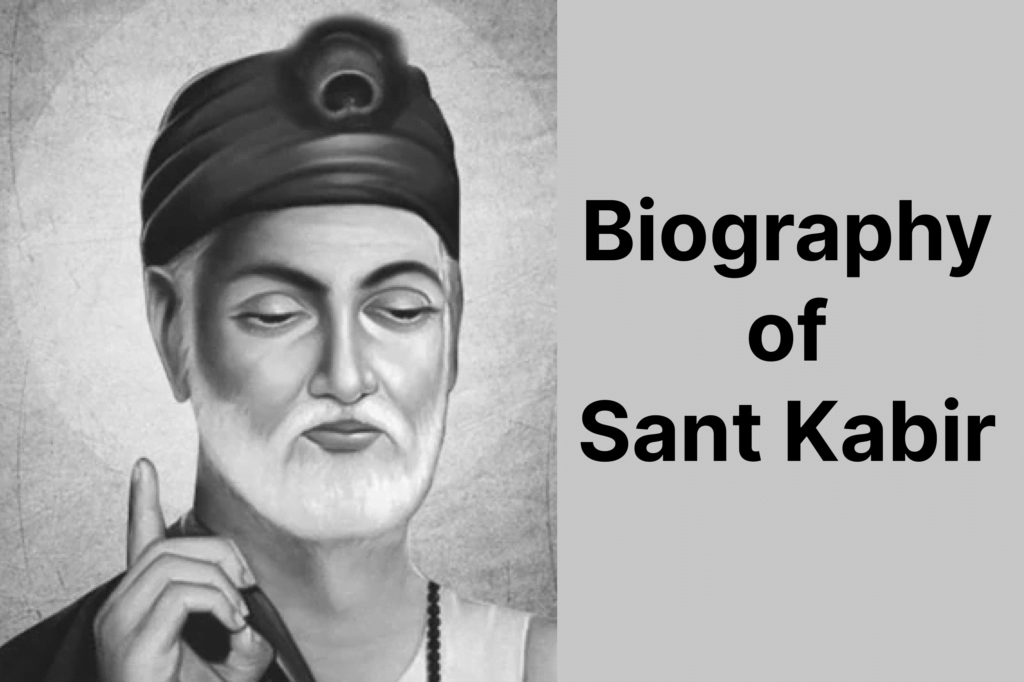
Keywords: Biography of Saint Kabir, The Philosophy of Kabir, Major Literary Works of Saint Kabir, Saint Kabir as Social and Cultural Critique, Saint Kabir in Modern Times
Table of Contents
The Philosophy of Saint Kabir
Kabir’s core philosophical beliefs are deeply rooted in the idea of a universal god that transcends religious divisions. He was a fervent proponent of the notion that the divine is omnipresent and not confined to any particular religion, creed, or sect. This perspective is poignantly captured in his poetry, where he often addresses God as the same ultimate reality, regardless of whether he uses terms from Hinduism, Islam, or other spiritual traditions. Kabir’s approach effectively bridges the gap between diverse religious ideologies, fostering a sense of unity and shared spirituality.
A central theme in Kabir’s philosophy is his vehement criticism of ritualistic practices and dogmatic religious observances. He believed that such rituals often distract individuals from the true essence of spirituality. Kabir argued that the divine could not be realized through mere external rites or ceremonies but through an inner, personal connection. He emphasized that genuine spiritual experience comes from within and can only be achieved through introspection and a heartfelt pursuit of truth.
Saint Kabir also placed significant importance on inner purity and the cultivation of virtues such as love and compassion. He taught that true devotion is characterized by an unstinting love for the divine and a compassionate outlook towards all beings. Kabir’s poetry frequently underscores the importance of self-purification and moral integrity, suggesting that these are the keys to spiritual enlightenment. The idea of ‘bhakti’ or devotional love is a recurrent theme in his works, advocating for a life led by sincere love and ethical conduct.
In essence, Kabir’s philosophy is a call to transcend superficial religious distinctions and embrace a deeper, more personal spirituality. His teachings continue to resonate, offering timeless wisdom on the importance of inner purity, love, and compassion in the quest for divine connection.
Major Literary Works of Saint Kabir
Kabir, a renowned Indian mystic poet, made an indelible mark through his profound literary contributions. His works encompass a variety of poetic forms, most notably dohas (couplets), songs, and other spiritually rich compositions. Among his seminal works is the Bijak, a compilation that stands out for its directness and depth. The Bijak is revered for its candid expression of Kabir’s philosophy, accentuating themes of spirituality and morality.
Another notable collection is the Sakhi Granth, which comprises a series of couplets known as sakhi. These couplets are potent with wisdom and serve as moral and spiritual guideposts. The Sakhi Granth emphasizes the importance of living a life of integrity, compassion, and introspection, reflecting Kabir’s core beliefs.
The Kabir Granthavali is yet another important anthology which brings together a wide array of Kabir’s poetic expressions. This collection showcases the breadth of his literary prowess, featuring poems that address a myriad of themes such as the futility of ritualistic practices and the quest for inner truth. Through his evocative language and vivid imagery, Kabir challenges societal norms and underscores the importance of personal spiritual awakening.
The recurring themes in Kabir’s works are deeply rooted in spirituality, morality, and social justice. His dohas often criticize the superficiality of rituals and the hypocrisy of religious institutions, advocating instead for a direct, personal connection with the divine. For instance, one of his famous couplet states, “Pothi padh padh jag mua, pandit bhaya na koi. Dhai akhar prem ke, jo padhe so pandit hoi,” which translates to, “Reading books everyone died, none became any wise. One who reads the word of love, only becomes wise.”
Through his literary contributions, Saint Kabir not only enriched the cultural fabric of his time but also provided timeless wisdom that continues to inspire and provoke thought. His works are a testament to the power of poetry in addressing profound existential and societal issues.
Saint Kabir as Social and Cultural Critique
Saint Kabir, a renowned 15th-century poet and mystic, wielded his literary prowess to offer profound critiques of the social and cultural norms of his era. His writings are poignant reflections on societal structures that perpetuated inequality and division. Kabir’s opposition to the caste system, a rigid social hierarchy that dictated the lives of millions, is a recurring theme in his work. Through his verses, Kabir vehemently challenged the legitimacy of the caste system, advocating for the inherent equality of all human beings regardless of their birth or social standing.
In addition to critiquing the caste system, Kabir’s writings also targeted the pervasive religious hypocrisy of his time. He observed how religious rituals and dogmas were often used as tools for social control rather than spiritual elevation. Kabir’s poems are replete with criticism of both Hindu and Muslim clerics who, in his view, obscured the essence of true spirituality with rigid orthodoxy and superficial practices. By questioning the authenticity of these religious figures, Kabir encouraged a more personal and direct connection with the divine, unfettered by institutionalized religion.
Kabir’s advocacy for social justice is evident in his call for a more inclusive and equitable society. His poems often highlight the struggles of marginalized communities, urging a collective awakening to the injustices faced by the poor and oppressed. Kabir envisioned a society where individuals were judged by their actions and character rather than their social or religious affiliations. This vision was not merely idealistic but served as a clarion call for societal reform, emphasizing the need for compassion, empathy, and mutual respect.
In essence, Kabir’s literary works serve as a mirror to the social and cultural milieu of his time, reflecting the deep-seated inequities and urging transformative change. His timeless wisdom continues to resonate, offering valuable insights into the pursuit of a just and harmonious society.
Influence on Bhakti and Sufi Movements
Kabir’s influence on the Bhakti and Sufi movements in India is both profound and enduring. His teachings, which emphasized the importance of a direct, personal connection with the divine, resonated deeply with followers of both Hinduism and Islam. Kabir’s poetry and hymns transcended religious boundaries, promoting a universal spirituality that appealed to the masses.
Central to Kabir’s philosophy was the idea that true spirituality is not confined to ritualistic practices or sectarian affiliations. Instead, he advocated for an inner devotion and a personal relationship with God, which he believed could be achieved through love, humility, and self-reflection. This inclusive approach made Kabir a unifying figure, bridging the gap between the Bhakti and Sufi traditions.
The Bhakti movement, which sought to democratize religious worship by making it more accessible to the common people, found a kindred spirit in Kabir. His compositions, often sung in local dialects, emphasized the futility of caste distinctions and the insignificance of external rituals. By focusing on inner purity and devotion, Kabir’s teachings aligned closely with Bhakti ideals, inspiring countless devotees to seek a more personal and emotional connection with their deity.
Similarly, Kabir’s impact on the Sufi movement was significant. Sufism, with its emphasis on mystical union with the divine and its inclusive, compassionate worldview, found a natural ally in Kabir’s message. His poetry often echoed Sufi themes of divine love and the quest for spiritual enlightenment, further blurring the lines between Hindu and Muslim spiritual practices. Kabir’s insistence on the oneness of God and the equality of all human beings resonated with Sufi principles, fostering a greater sense of unity and mutual respect among his followers.
Through his teachings, Saint Kabir played a crucial role in promoting a devotional approach to spirituality that transcended sectarian boundaries. His legacy continues to inspire and guide those who seek a deeper, more inclusive understanding of the divine, underscoring the timeless relevance of his wisdom in today’s diverse and interconnected world.
Keywords: Biography of Saint Kabir, The Philosophy of Kabir, Major Literary Works of Saint Kabir, Saint Kabir as Social and Cultural Critique, Saint Kabir in Modern Times
Saint Kabir in Modern Times
Kabir’s teachings, though rooted in the 15th century, possess a timeless quality that continues to resonate deeply within contemporary society. His messages of unity, love, and social justice are profoundly relevant in an era increasingly characterized by division and inequality. Kabir’s emphasis on the oneness of humanity and the futility of religious and social barriers speaks directly to modern efforts to promote inclusivity and equity.
In today’s world, where social and religious tensions often dominate headlines, Kabir’s call for harmony and understanding serves as a guiding light. His poetry transcends temporal and cultural boundaries, inviting individuals to look beyond superficial differences and to recognize the shared essence of humanity. This universal appeal makes Kabir’s work a powerful tool for fostering dialogue and reconciliation among diverse communities.
Moreover, Kabir’s critique of social injustices, such as caste discrimination and hypocrisy, remains strikingly pertinent. His fearless denunciation of societal ills encourages contemporary activists and social reformers to challenge entrenched systems of oppression. Kabir’s advocacy for the marginalized and his vision of a just society continue to inspire movements aimed at eradicating inequities and championing human rights.
Kabir’s literary legacy is not confined to the past; his works are actively studied, performed, and revered in modern times. Scholars and enthusiasts engage with his dohas (couplets) and songs, uncovering layers of meaning that speak to present-day concerns. Performances of Kabir’s verses, whether in traditional forms or contemporary adaptations, bring his teachings to new audiences, ensuring their enduring relevance.
Significantly, Kabir’s influence extends beyond literature and performance into the realm of social activism. His vision of a society founded on love, compassion, and mutual respect inspires modern movements for social change, motivating individuals and groups to strive for a better world. In this way, Kabir’s timeless wisdom continues to shape and uplift the collective consciousness, guiding humanity toward a future defined by unity and justice.
Kabir’s Legacy
Kabir, a 15th-century mystic poet and saint, has left a profound legacy that continues to resonate across generations. His unique blend of spirituality, social critique, and poetic expression has influenced a diverse array of poets, thinkers, and social reformers. Kabir’s verses, known for their simplicity and depth, have transcended the boundaries of time, language, and culture, making him a timeless figure in the literary and spiritual realms.
One of the most significant aspects of Kabir’s legacy is his impact on later poets and writers. Notable figures such as Rabindranath Tagore, Mahatma Gandhi, and T.S. Eliot have acknowledged Kabir’s influence on their own works. Tagore, in particular, translated many of Kabir’s verses into English, bringing his teachings to a global audience. Gandhi often quoted Kabir in his speeches, finding inspiration in his messages of equality and non-violence. Eliot, too, admired Kabir’s profound spiritual insights and incorporated similar themes into his poetry.
Kabir’s legacy is also preserved through various cultural and academic endeavors. Festivals celebrating his life and teachings, such as the Kabir Mahotsav, are held annually in different parts of India. These events feature recitations of his poetry, musical performances, and discussions on his philosophy, keeping his spirit alive in contemporary society. Additionally, Kabir’s works are a subject of extensive academic study, with numerous scholars dedicating their research to exploring the depth and breadth of his contributions. Universities and research institutions around the world offer courses and publish papers that delve into the intricacies of Kabir’s thought and its relevance in modern times.
In literature, Kabir’s influence is evident in the works of countless authors who draw inspiration from his themes of unity, love, and social justice. His poems continue to be published in various languages, ensuring that his wisdom reaches new audiences. The continued interest in Kabir’s teachings, both in academia and popular culture, underscores the enduring relevance of his messages in addressing contemporary social and spiritual challenges.
Conclusion
Kabir stands as a towering figure in the annals of literary and social history, a poet whose words transcend the barriers of time and culture. His works are not merely poetic expressions but profound reflections on the human condition, imbued with a deep sense of spirituality and social consciousness. Through his verses, Kabir eloquently challenged societal norms, critiquing the entrenched caste system and religious dogmas that divided people. His call for a universal love and unity resonates as strongly today as it did in his own time, offering a beacon of hope and a blueprint for harmonious living.
Kabir’s significance extends beyond his literary prowess; he was a social reformer who dared to question the status quo and inspire change. His teachings advocate for an egalitarian society, where individuals are valued for their inherent humanity rather than their social standing or religious affiliation. This message of inclusivity and acceptance continues to have a profound impact, encouraging us to transcend our differences and embrace our shared humanity.
The timeless nature of Kabir’s teachings lies in their universal applicability. In a world often fragmented by conflict and division, his message of love, unity, and understanding offers a much-needed antidote. His poetic voice, rich with wisdom and compassion, speaks to the core of our shared human experience, urging us to look beyond superficial distinctions and connect on a deeper, more meaningful level.
As we reflect on Kabir’s enduring legacy, it becomes clear that his words are not confined to a particular era or culture. They are a testament to the power of literature to inspire change and the enduring relevance of a message rooted in love and unity. Kabir’s work remains a guiding light, illuminating the path toward a more just and compassionate society, and reminding us of the timeless wisdom that lies in the pursuit of universal love and understanding.
Click on the link to read Couplets of Kabir / Kabir ke Dohe
Keywords: Biography of Saint Kabir, The Philosophy of Kabir, Major Literary Works of Saint Kabir, Saint Kabir as Social and Cultural Critique, Saint Kabir in Modern Times

